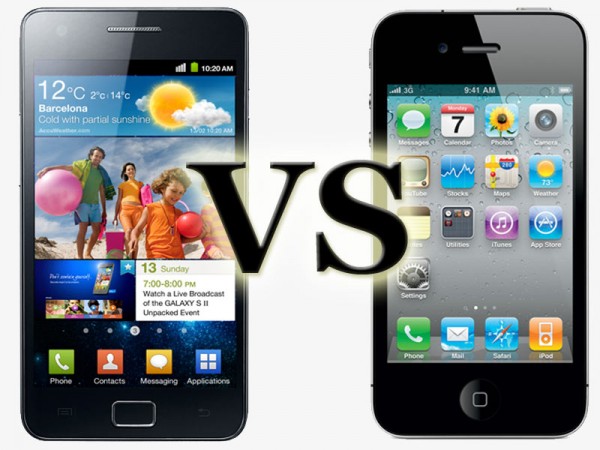Apple sued Samsung for allegedly ripping off the iPhone and iPad, Samsung’s request to see Apple’s next iPhone and iPad has been rejected by a US judge as the two tech giants battle in court over smartphone patents. Samsung had argued it needed to see what Cupertino was working on in order to judge whether its own future products might be infringing, but the court didn’t really buy it………….
The good news for Apple is that Samsung‘s motion is denied at least for the time being. This comes as little surprise. It was all too obvious that Samsung was comparing apples to bananas: Apple‘s request for expedited discovery was far more justified (in terms of a need to evaluate the requested material) and far less prejudicial (as Apple only requested products of which samples were already circulating, in the case of the Galaxy Tab 10.1 including 5,000 samples handed out at a Google developer conference) than Samsung’s related motion. Even though the court had previously indicated that “what’s good for the goose is good for the gander“, the “what” was very different between the two requests, and the “why“, too. The judge made a lot of effort in her 11-page order to explain that Samsung is entitled to “parity” but its motion was overreaching in this case. The potentially bad news for Apple is that the court order contains a passage hinting that Apple may not get a preliminary injunction against the sale of certain Samsung products in the United States at this stage.
Instead, it may be necessary for the court to evaluate such a motion against the background of the iPhone 5 (as far as any Samsung phones are concerned) and the iPad 3 (as far as any Samsung tablet computers are concerned), whenever Apple is in a position to present those products. The hinting passage begins with a reference to a possible preliminary injunction motion that Apple may present in the near term. In its opposition to such a motion, Samsung can still “raise the possible introduction of next generation products”, says the judge, and explains this in more detail:
Samsung is free to argue, for instance, that there is little likelihood of confusion because consumers will not encounter its products side-by-side with the iPhone 4 or iPad 2, but rather with Apple’s next generation iPhone and iPad. Similarly, as to proximity, Samsung is free to argue that because the iPhone 4 and iPhone 2 will soon be outmoded and reduced in price, they are not being sold (or very soon will not be sold) to the same class of purchasers who are likely to buy new Samsung products. By choosing to allege infringement only of its current products, Apple opens itself up to these arguments.
The above passage is not a recipe for making Apple‘s possible preliminary injunction motion fail. Samsung might make the above points, and they might be more or less valid at that stage, but the court could still determine that the injunction should be granted for other (ultimately more important) reasons. But Apple will have to think carefully about the scope and timing of a preliminary injunction motion. If Apple requested an injunction against the Galaxy phones, Samsung would certainly argue that a new iPhone will be released in the near term. In yesterday’s order, the judge also notes “that Apple’s past history of releasing a new iPhone each June over the past four years supports an inference that the next generation iPhone will be forthcoming.” If Apple can present the iPhone 5 to the court and show that the alleged problem of “consumer confusion” is essentially the same as currently (in terms of similarities between the Galaxy handset and the iPhone 4), Apple’s motion for an injunction is no less likely to succeed (though it’s clear that Samsung would try to overstate any possible differences in design).
But if Apple still doesn’t want to show the iPhone 5 at that stage, the court may be hesitant to grant an injunction because an injunction may be the appropriate decision as long as the Galaxy competes with the iPhone 4 but it may no longer be justified after the release of the iPhone 5, which almost everyone believes we will see later this year, in the event that the iPhone 5‘s design departs in important ways from previous iPhones. Should Apple limit its preliminary injunction motion to tablets, its past release history would suggest an iPad 3 release in 2012, so there’s less of a basis than in the iPhone‘s case for claims that the release of a new product generation is almost imminent. But there are rumors in the media that the iPad 3 may become available this fall, too. If Apple indeed wants to launch the iPad 3 very soon, it may have to be careful about when to announce it because it could have implications for the court’s evaluation of a preliminary injunction motion.
[ttjad keyword=”ipad”]



